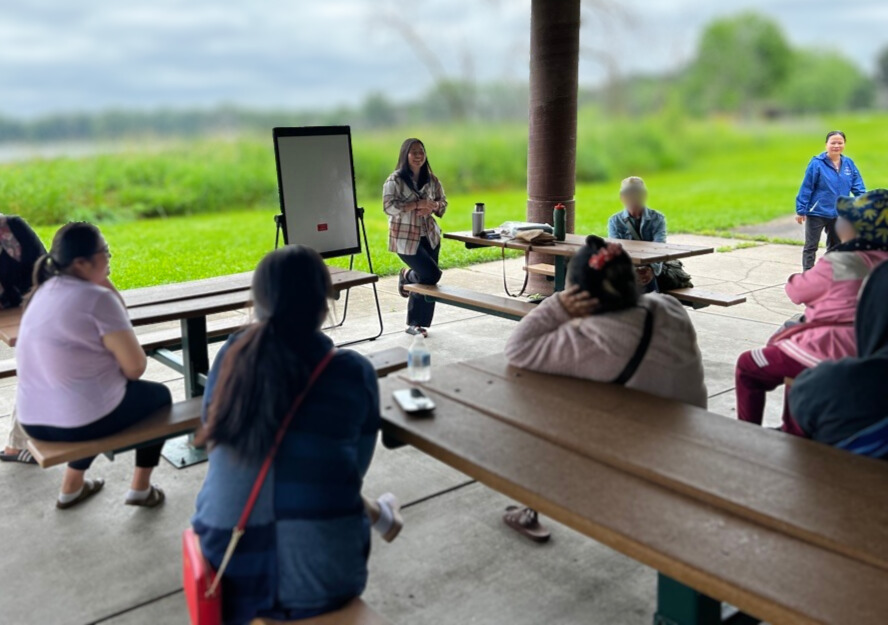
The Karen Organization of Minnesota’s Peer Support program is a part of the Community Health branch of KOM’s services and overseen by Ner Mu (Community Health Educator and Supervisor) and Hsa Hser (Community Health Educator).
Currently, the Peer Support group has 15 client-members, the majority being Karen women between ages 35 and 55. On average, clients have been involved in the program for three years, signifying a sense of comradery and value as a resource among the group members.
The programming provides a space for clients to share successes or struggles as a Karen refugee in Minnesota, learn more about community health topics and resources, and maintain connections with the Karen community and KOM. The group meets for one two-hour session on the last Friday of every month.
September Peer Support: Suicide Prevention Awareness Month
At a recent session held on Sept. 26, the Peer Support group grappled with the difficult topic of suicide, while educating the importance of mental health awareness and self-harm prevention. Gathered in a conference room at KOM’s Roseville office, Community Health Educator Hsa Hser led the group discussion.
Mental health stigma is not exclusive to the U.S. or other Western countries. As the Peer Support group discussed, Karen men may often feel withdrawn and unwilling to share their internal struggles with their friends and family.
The group agreed there were a variety of reasons why this could be. Just like other cultures around the world, there are traditional roles and expectations that are seemingly hardwired into Karen men from an early age. There is pressure as a man to fulfill social and familial duties. One client added, some men may even be criticized by other family members if they fall short of what is expected of them.
Karen men in this position will often have no one to speak vulnerably to, leaving a lack of “safe space” to discuss their feelings. After all, part of the traditional expectations of being a man is to shoulder any emotional burdens, creating a stigma around the need to express how they really feel.
Peer Support Client Shares Experience with Depression
Of course, while there is traditional stigma around Karen men, mental health is just as a significant issue for women.
During the Peer Support session, one client shared her experiences with depression. As a mother who became widowed a few years ago, she explained the stresses of things not going her way or her teenage children not always acting obedient as triggers for her depressive symptoms.
In a courageous, resonant voice, she emphasized the power of having difficult conversations with her family as an effective way of managing her emotional struggles. In the past, she has been openly transparent to them about her feelings and thoughts of self-harm. In addition to her family support system, she recalled how therapy has been a crucial resource towards opening up.
The client concluded by acknowledging the impact the Peer Support program has had on her mental health. She looked around the room, nodded at her peers–now, friends after meeting on the last Friday of every month for a couple of years now.
Published: November 17, 2025


 (651)788-7593
(651)788-7593


